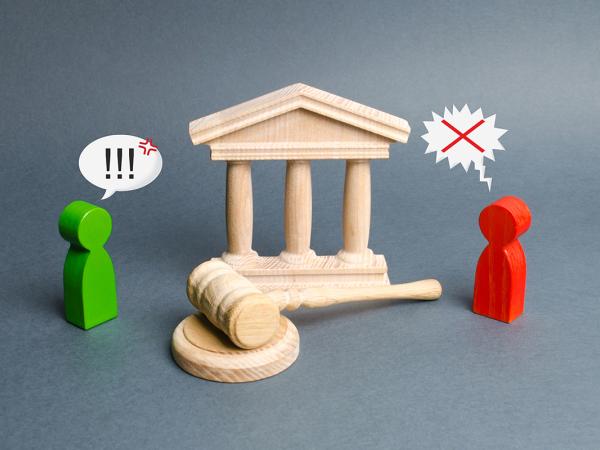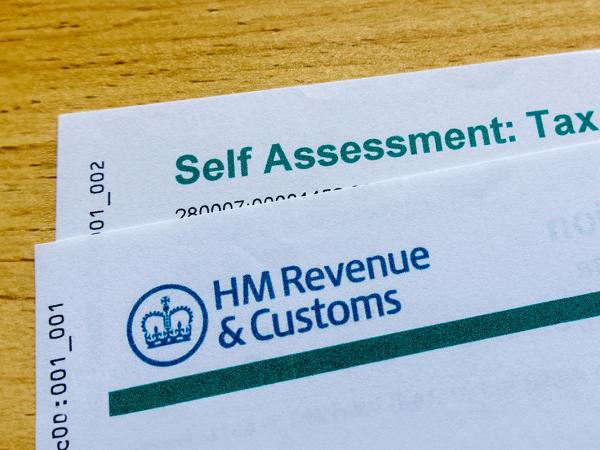Late tax return penalties: do you have a reasonable excuse?
If you miss the self assessment tax return deadline, HMRC will automatically send you a 'late filing penalty’ notice.
Penalties start to increase the longer the tax return is outstanding. If you didn’t get your 2022/23 tax return submitted by 31 January 2024 and still have not sent it in, you might start to see daily penalties being applied from the start of this month.
But what if you were unable to submit your tax return on time for reasons outside of your control? It is sometimes possible to appeal late filing penalties if you can show that you had a ‘reasonable excuse’.
We know that for 2022/23 tax returns, some people especially struggled with HMRC changing the way they do things. If changes to HMRC services affected you submitting your tax return on time, you might look at whether you could argue you had a reasonable excuse.

Content on this page:
What are self assessment late filing penalties?
If your self assessment tax return is late, HMRC can automatically charge you a penalty – even if you have no tax liability.
These penalties are:
- £100: applied immediately if the tax return is late
- £10 per day: charged once the tax return is 3 months late, for a maximum of 90 days
- the higher of £300 or 5% of the tax due: applied if the form is 6 months late
- a further £300 or 5% of the tax due (whichever is higher): applied if the form is 12 months late
There are separate penalties that apply for paying your tax late.
There are also penalties that can apply if you fail to notify HMRC about a liability to tax. These apply where HMRC have not sent you a tax return in the first place.
This article only looks at late filing penalties.
Can I cancel my tax return?
If HMRC asked you to file a tax return for the 2022/23 tax year, but you have not yet submitted it, you will need to do so before you can appeal any late filing penalties.
However, if you believe you did not meet HMRC’s self assessment criteria for the year, you can ask HMRC to withdraw the need to file the return. If HMRC agrees to this, any late filing penalties for that return will be cancelled automatically. You must do this before the tax return is filed. You can read more about this in our guidance.
How can I appeal a late filing penalty?
If you filed your tax return late due to reasons outside of your control, you might consider appealing the late filing penalty on the grounds of having a ‘reasonable excuse’.
You will normally need to submit your appeal within 30 days of receiving the penalty notice. However, HMRC may accept a late appeal – so don’t be put off if you are now outside that timeframe and have only just realised that you might be able to appeal.
There is an online appeal tool on GOV.UK. This gives you the option to appeal online or to download a form and appeal by post.
Once you have submitted your appeal, HMRC will then let you know their decision. If they accept your appeal, then the penalties will be cancelled. If HMRC reject your penalty appeal, then you are entitled to appeal that decision, via an independent HMRC review and/or to the Tax Tribunal.
What might be considered a reasonable excuse?
It is not possible to give a definitive list of situations that will be accepted as a ‘reasonable excuse’ for sending in your tax return late.
When making an appeal, you must always give the true facts about your own case.
HMRC (or the Tribunal on further appeal) consider each case based on its specific facts. But a reasonable excuse can include things such as:
- unexpected stays in hospital or other occasions of significant ill health
- fire, flood or other emergencies that prevent you from filing your tax return on time
- death of a close relative near to the filing deadline
- unexpected postal delays
HMRC’s technical manuals include some further general information about reasonable excuse.
To claim a reasonable excuse, you must have submitted the late tax return as soon as you could after the excuse ended. For example, if you were in hospital and missed the deadline, you must have submitted the tax return as soon as you were discharged and well enough to do so.
Could changes in HMRC processes mean you have a reasonable excuse?
In recent times, HMRC have taken various steps to encourage taxpayers to deal with their tax affairs online and ‘self serve’.
The actions taken by HMRC include:
- not automatically sending out 2022/23 paper tax returns last year,
- restricting access to their self assessment helpline over summer 2023, and
- encouraging (and, in some cases, forcing) people who telephone them to find answers online. HMRC did this by: by disconnecting calls to the helpline and instead sending an SMS text message to your mobile phone with a link to GOV.UK guidance; and/or directing people to use their ‘digital assistant’ tool online – a sort of chatbot.
We understand that these measures caused some taxpayers difficulty – and may have directly resulted in some missing the self assessment filing deadline which, in turn, will have triggered late filing penalties.
We look below at whether the measures taken by HMRC might give rise to a ‘reasonable excuse’ for late filing.
Please note: The information that follows includes examples where a taxpayer might have a reasonable excuse for filing their tax return late. There is no guarantee that HMRC would accept the late filing penalty appeals based on the facts outlined in these examples. If a penalty appeal is rejected, taxpayers have the option to make a further appeal against HMRC’s decision.
Possible reasonable excuse 1: You were not sent a paper tax return
Last year, after the end of the 2022/23 tax year, HMRC announced that they were no longer planning to send out paper tax returns to most people.
There were some exceptions to this, for example people over the age of 70, those who are registered blind, and some other groups.
But otherwise, many people who had previously filed their tax return on paper were told they had to either file their 2022/23 tax return online, or telephone HMRC asking them for a paper form to be sent by post.
If your tax return was late as a direct result of the change of approach to paper tax returns last year, then you may wish to consider appealing any late filing penalty you have received.
Possible reasonable excuse 2: You were unable to access HMRC online services
Following on from the idea of HMRC encouraging more people to file their tax returns online, it might be the case that a taxpayer tried, but was unable to do so for reasons outside of their control.
We are aware that some people have difficulty creating an online government gateway account. Often this can be because they are unable to successfully verify their identity.
If the taxpayer realises the problem too late, this could lead to the tax return being submitted after the deadline – especially if the taxpayer’s only option is to revert to a paper return. This is because online returns have a submission deadline of 31 January following the end of the tax year, but paper returns have to be in by 31 October – three months earlier.
If this happened to you, then you could consider appealing your late filing penalty.
Possible reasonable excuse 3: You were unable to get the help you needed from HMRC on the telephone (or online)
There were extensive reports of very long waiting times to speak to HMRC on their helplines in the lead up to the self assessment filing deadline in January 2024.
In addition, there were reports that a large volume of calls were not answered at all, with taxpayers being advised to find the answer online or call back another time.
As a result, some taxpayers who needed assistance with their tax return may have found themselves unable to get the help they needed ahead of the filing deadline.
If this happened to you, then you might consider appealing any late filing penalties on the grounds of having a reasonable excuse.
Tips on making an appeal
Whether HMRC (or the Tax Tribunal) will accept an appeal against a late filing penalty on the grounds of reasonable excuse is not always easy to predict – every case is decided on its own facts.
Our top tips for maximising your chances of success are:
- Make sure you submit your tax return as soon as you can. For a valid appeal, you must be able to show that you remedied the situation as soon as possible.
- Appeal the penalty as soon as possible after it is issued to you (remember you usually only have 30 days to do so, but sometimes HMRC or the Tax Tribunal might accept a late appeal).
- Make sure you give HMRC as much information as possible about the reasons you filed late.
- Don’t feel you have to just give one reason – there might be multiple factors that have contributed to the overall situation.
If HMRC reject your penalty appeal, then you are entitled to appeal further.
Finally, if you are struggling with a penalty appeal, then help might be available:
- If you have additional needs, you might consider contacting HMRC’s extra support team.
- If you are on a low income, you might be able to approach one of the tax charities for free support with making an appeal.
- You can consider getting professional assistance from a tax adviser or accountant.



